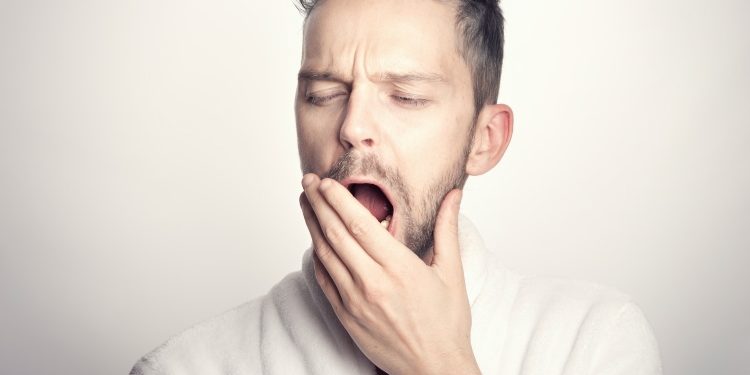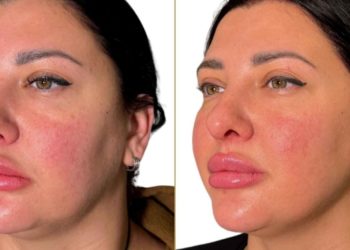Sleep deprivation is a genuine problem and one that can have severe consequences for your health and well-being. You may feel like you’re doing everything right, from setting a consistent bedtime to avoiding caffeine in the evening, but you still struggle with insomnia or not getting enough sleep. Luckily for those searching for remedies to their sleepless nights, this blog post will present ten proven strategies for treating insomnia and getting a good night’s sleep. We’ll look at different activities and practices that can help you get the restful sleep you need, ranging from dietary changes to mental techniques to soothe stress before bedtime. After reading our guide, we hope that by following these steps, you can quickly rediscover time spent sleeping peacefully and further relieve you can get medication from medambien.
- Identify the leading causes of insomnia
Insomnia is a complicated and potentially debilitating condition affecting people worldwide, leading to difficulty falling, staying, or both. Common causes of insomnia include stress, physical pain, environmental noise, certain medications like antidepressants, and caffeine. Additionally, certain medical conditions can lead to an inability for people to fall asleep, such as chronic pain or depression. Finally, people may also experience sleeplessness due to changes in their circadian rhythm resulting from shift work or travel. With so many potential causes and the various degrees of insomnia they can produce, it’s no surprise that this condition affects many people worldwide.
- Develop a consistent sleep schedule
Establishing a regular sleep schedule is an effective way of improving your quality and quantity of sleep. Making sure that you go to bed and wake up at the exact times every day can help to regulate your body’s internal clock and make it easier to fall asleep – as well as help to increase the amount of restful sleep you receive each night. Take into account when you naturally feel tired, aim for seven to nine hours of sleep per night, and then stick faithfully to this routine. It may take time for your body to adjust initially, so do not get discouraged if the results are not immediately noticeable. But instead, persist in adhering to your chosen sleeping schedule; soon, you may find yourself looking forward to a good night’s rest daily.
- Reduce your intake of caffeine
Reducing caffeine intake and other stimulants can be practical in treating insomnia. Caffeine and other stimulants act on the central nervous system, affecting the body’s ability to relax into the necessary state for sleep. Although they may increase energy in the short-term, frequent consumption of these substances has been linked to an increased risk of sleepless nights. Therefore, keeping intake of these substances at minimal levels is vital to preserving healthy sleep cycles.
- Exercise regularly
Regular exercise is an essential step towards a good night’s sleep. Physical activity helps tire the body, leading to greater relaxation and better sleep quality when hitting the hay. However, caution should be exercised regarding strenuous activities before bedtime. For example, vigorous exercise that increases the heart rate can often lead to increased alertness and difficulty settling when ready for rest. Therefore, it is recommended that more calming forms of exercise, such as yoga or stretching, are practised before bed. It will help bring about necessary relaxation and support more restful sleep.
- Avoid large meals late at night
Eating heavy meals late in the evening can make it more difficult to fall asleep and remain asleep throughout the night. In addition, having a regular evening routine can be beneficial when getting more restful sleep. Studies have shown that going to bed and waking up at similar times is critical to better sleep quality and can help manage insomnia symptoms. It’s also suggested that you remove all distractions, such as phones or televisions, from your designated sleeping area. It can create a relaxing environment and a good night’s sleep.
- Make sure your bedroom is comfortable
Achieving a peaceful sleep often starts with setting up the bedroom environment to be dark, quiet, and comfortable. Darkening the room helps regulate melatonin production, naturally preparing your body for sleep. However, noise also plays a prominent role in disrupting one’s slumber; if not managed properly with white noise machines or earplugs, it can prevent you from falling asleep quickly and easily. And, of course, comfort is essential; invest in quality bedding that keeps you warm and cosy all night long.”
- Start sleeping rituals
Starting a sleeping ritual is one of the best ways to ensure a good night’s sleep. Pre-bedtime practices, such as taking a warm bath, reading a book, or engaging in calming activities, can help your body and mind transition from being alert to slowly winding down. These rituals also give your body cues that it is time for bed. Additionally, creating an environment for sleeping that is cool, dark, and free of distractions can also contribute to better sleep hygiene. To get your best night’s rest, follow these proven strategies for treating insomnia and start sleeping rituals that help you relax.
- Increasing bright light works during the day
Studies have shown that increasing exposure to bright light during the day can help those with insomnia get the much-needed restful sleep they desire. It can be accomplished by walking outdoors, exposing yourself to natural sunlight, or using a lightbox. Light has been proven to improve circadian rhythms and reset a person’s internal clock, an effective way to improve sleep patterns. In addition, taking action steps such as this provides an opportunity for better health and functioning, as getting adequate and restful sleep is essential for physical, mental, and emotional well-being.
- Get active
Exercise is vital to treating insomnia and getting a good night’s sleep. Regular physical activity can help to regulate the body’s natural circadian rhythms and provide a calming effect. Additionally, endorphins released during physical activities have been shown to have an overall positive impact on mood, leaving the body better able to relax and slip into a restful sleep. So if you have insomnia, get some moderate exercise each day and make it a regular part of your bedtime routine.
- De-stress yourself
If you are having difficulty falling asleep, one of the best ways to treat your insomnia is to de-stress yourself. Taking time out of your day to relax can significantly impact how easy it is for you to drift off when it’s time for bed. For instance, deep breathing has been found to reduce stress levels and help promote relaxation significantly. Additionally, going for a walk or participating in some light stretching and yoga exercises can be practical ways to de-stress and improve the quality of your sleep. Finally, other activities, such as writing down worries in a journal or practising calming techniques such as guided imagery or progressive muscle relaxation, can help decrease tension and create an atmosphere conducive to a good night’s rest.
Conclusion
Getting a good night’s sleep is essential for our overall health and well-being. Following these ten strategies for treating insomnia can help you get back to sleeping healthy and waking up energized. To reduce the effects of insomnia, it’s essential to identify the leading causes and develop an effective sleep plan with a consistent schedule. Regular exercise and reducing caffeine intake can play an important role too. Sticking to a normal evening routine, making sure your bedroom is dark, quiet and comfortable, and starting sleeping rituals are just a few habits that can help improve the quality of your sleep. Moreover, moderating light exposure and allowing yourself time to de-stress will be instrumental in promoting better sleep. With a combination of lifestyle changes prescribed here and medical advice, if needed, you can conquer insomnia and get back on track with healthier sleeping habits.
David Prior
David Prior is the editor of Today News, responsible for the overall editorial strategy. He is an NCTJ-qualified journalist with over 20 years’ experience, and is also editor of the award-winning hyperlocal news title Altrincham Today. His LinkedIn profile is here.


![7 Best POS Software in the UK [2026 Edition]](https://todaynews.co.uk/wp-content/uploads/2026/02/7-Best-POS-Software-in-the-UK-2026-Edition-360x180.png)








































































